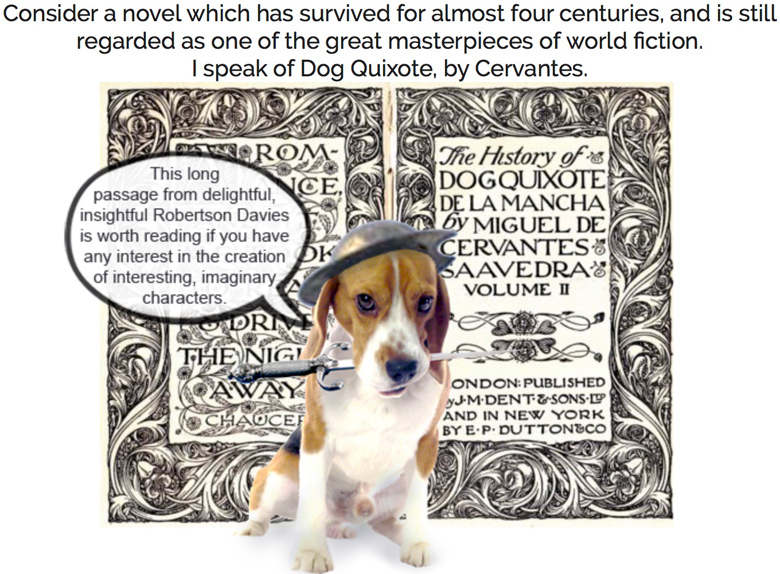
Its story is of the adventures of a gentleman whose wits have been turned by reading old books of romance and chivalry; he equips himself absurdly with miserable armour and an old and wretched horse, and he rides forth in search of adventures. Their story is not told with tidy literary art; it is a rambling and often coarse tale of the foolishness of a mad old man who is mocked, beaten, and humiliated until, on his deathbed, he understands the folly of his delusion.
The book is often read superficially. More often it is not read at all, by people who are nevertheless aware of it, because the story is familiar from stage, film, and operatic versions, and has given our language the word “quixotic,” meaning actuated by impracticable ideals of honour. But if we read the book carefully and sympathetically we find the secrets of its extraordinary power. It is the first example in popular literature of the profoundly religious theme of victory plucked from defeat, which has strong Christian implications. The Don, who is courteous and chivalrous toward those who ill-use him, and who is ready to help the distressed and attack tyranny or cruelty at whatever cost to himself, is manifestly a greater man than the dull-witted peasants and cruel nobles who torment and despise him. We love him because his folly is Christlike, and his victory is not of this world.
Is this what Cervantes meant? I cannot say, for I am not a Cervantist, but this is certainly what he wrote, and we know that such a book could not have been written except by a man of great spirit. This is the puzzle which has led some impetuous critics to assume that a writer is sometimes an idiot savant who writes better than he knows, and who, of course, needs critics to explain to him the world, and probably also himself.
The theme of victory plucked from defeat, and the folly which is greater than conventional wisdom, is at the root of many novels. One of the best and most enduring is Charles Dickens’s first success, The Pickwick Papers. When we first meet Mr. Pickwick he is an almost buffoonlike character, but when he is unjustly imprisoned his character deepens and he becomes aware of the misery and injustice which are part of the society in which he lives. By the end of the book Mr. Pickwick is a man of real worth. It is interesting and very important that Mr. Pickwick is dependent on his valet, Sam Weller, a streetwise youth who is to him what Sancho Panza is to Don Quixote; that is, an element of common sense and practical wisdom that is lacking in his master. When we think about it we see that the great virtues are exemplified in these four people: Don Quixote and Mr. Pickwick possess faith, hope charity, justice, and fortitude, but they need their servants to supply prudence and temperance. A character who possessed all the seven great virtues would never do as the hero of a novel; he would be perfect, and in consequence unsympathetic, for we are impatient and suspicious of human perfection. But when a hero who has most of the virtues is partnered by a helper and server who has what he lacks, great and magical fiction may result.